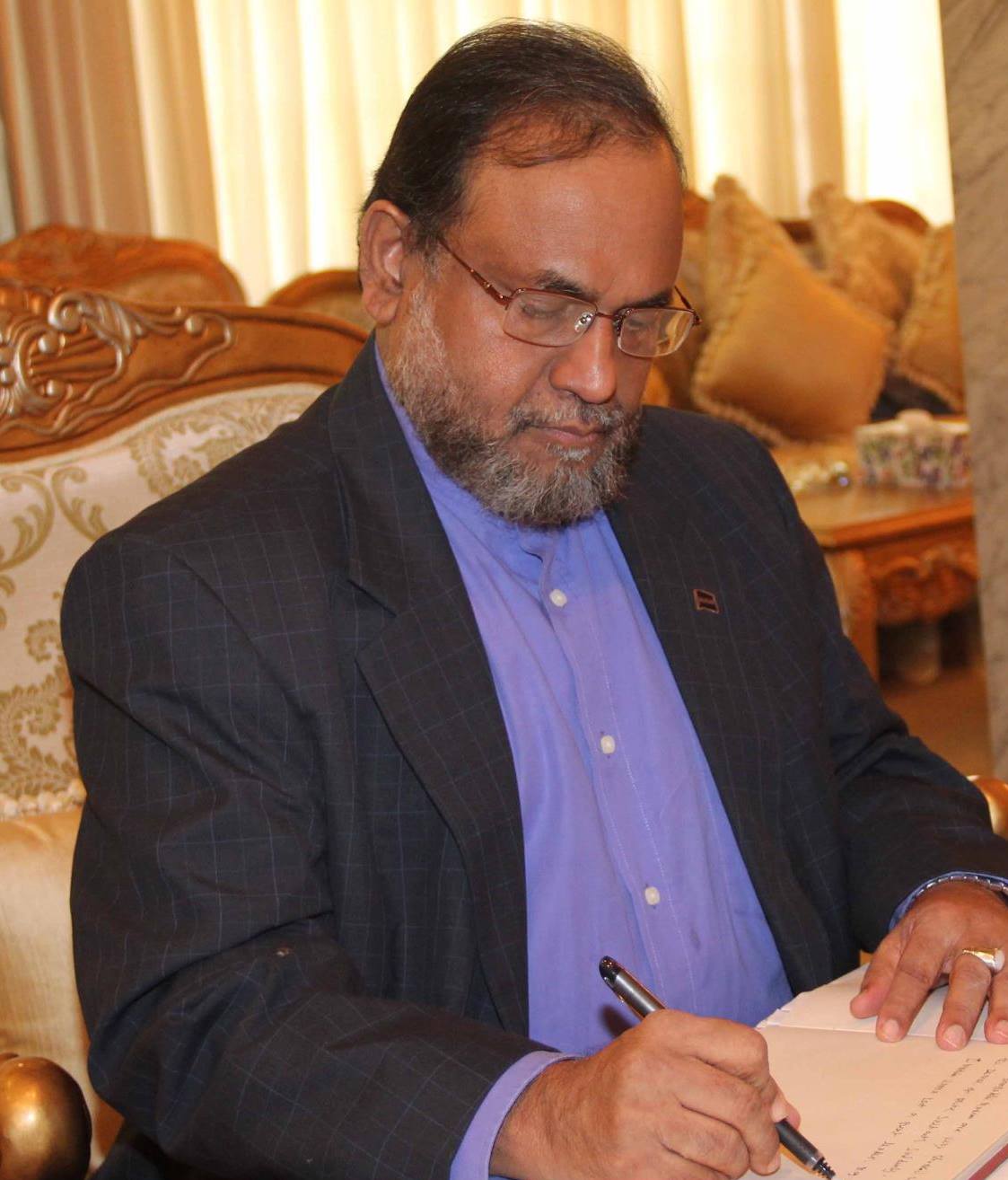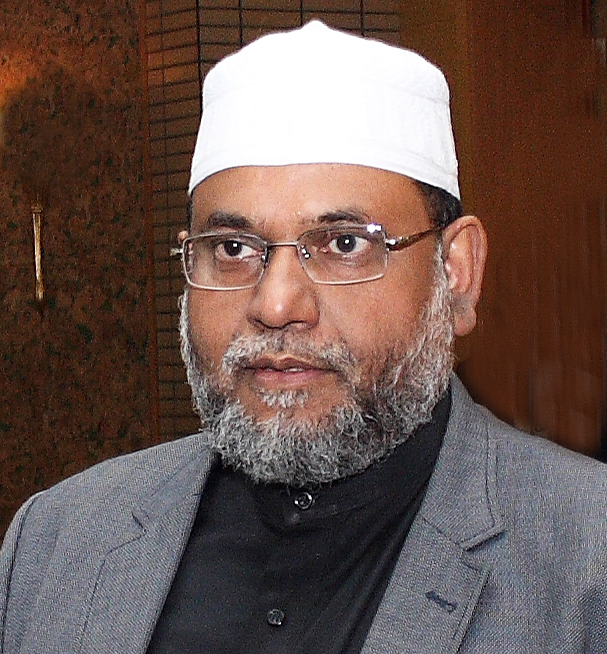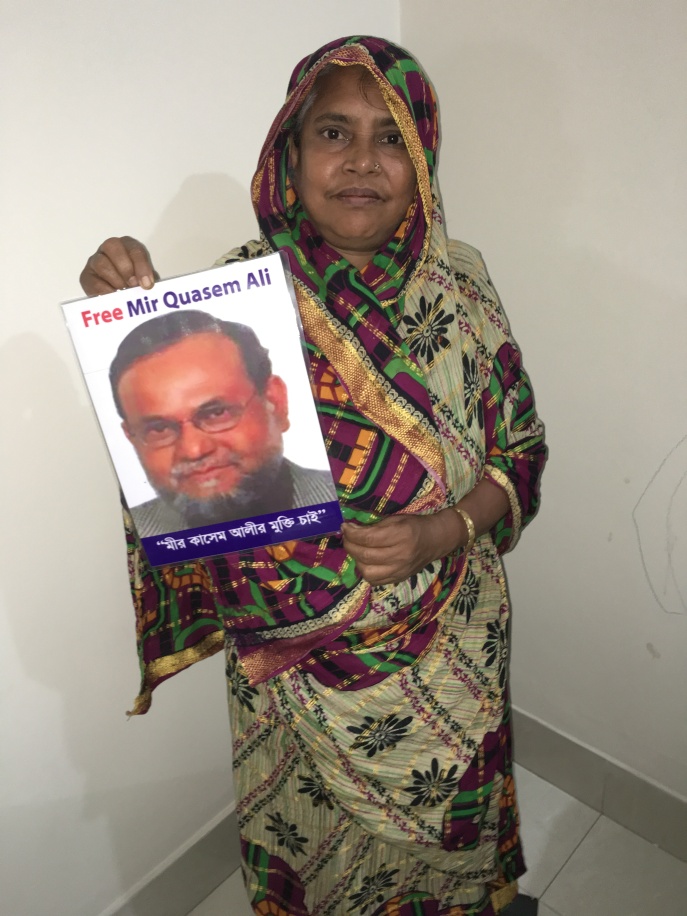Bangladesh: (Mir Quasem Ali’s) War Crimes Verdict Based on Flawed Trial
Chief Justice Calls Prosecution “Incompetent” and Evidence “Insufficient”
https://www.hrw.org/news/2016/03/22/bangladesh-war-crimes-verdict-based-flawed-trial
(New York) – Bangladeshi authorities should immediately set aside the death penalty against Mir Qasem Ali, a senior member of the executive committee of opposition party Jamaat-e-Islaami, and order a new trial that meets international fair trial standards, Human Rights Watch said today.
The Supreme Court upheld the conviction against Ali despite earlier statementsin court by Chief Justice Surendra Kumar Sinha, criticizing the attorney general, prosecutors, and investigators for producing insufficient evidence in the trial court. According to credible, detailed notes from the hearing in the Supreme Court, he said to the prosecutors: “What prevented the investigation agency to produce sufficient witnesses to prove the charges? … The prosecution and the Investigation Agency need to produce sufficient evidence to support a conviction… We feel really ashamed when we read the prosecution evidence.” The attorney general, Mahbubey Alam, in turn was quoted saying, “The Supreme Court observed that a huge amount of money is being spent on the prosecutors and investigators, but they did not handle and investigate the cases properly.”
Bangladesh’s Attorney General Mahbubey Alam leaves the Supreme Court in Dhaka after the court’s verdict on appeals by two opposition leaders on November 18, 2015. Bangladesh’s Supreme Court rejected final appeals from two opposition leaders against death sentences for atrocities committed during the 1971 war of independence.
“Convictions can only be upheld when there is proof beyond a reasonable doubt, yet in this case there are grave doubts about the evidence after the court so strongly criticized the prosecution,” said Brad Adams, Asia director at Human Rights Watch. “In death penalty cases the authorities must adhere to the highest standards.”
Ali was convicted and sentenced to death in November 2014, by the International Crimes Tribunal (ICT) on 10 out of 14 counts of abduction, torture, and confinement as crimes against humanity. For these crimes, he was sentenced to 72 years in prison. Ali was also convicted on two further counts of murder, in one case of two adults and in the other of a child, Jashim Uddin. He was sentenced to death for the murders.
On March 8, 2016, the Appellate Division of the Bangladeshi Supreme Court set aside three of the abduction and torture convictions. It also acquitted Ali of the murder of the two adults. However, it upheld the conviction and death penalty sentence against Ali for the murder of Jashim Uddin during the war.
Human Rights Watch has long supported justice and accountability for the horrific crimes committed during Bangladesh’s 1971 war. But this must be done through trials which meet international standards, particularly since the death penalty is at stake. Bangladesh owes the victims of 1971 a fair and proper accountability process.
Brad Adams
Asia Director
As in other cases before the ICT, the defense was arbitrarily limited in its ability to submit evidence, including witnesses and documents. Defense lawyers were allowed to produce only three witnesses to counter 14 separate charges. Lawyers were threatened orally with a 50 lakh taka (approximately US$64,000) fine when they asked the judges to review their order limiting witnesses. The court denied the defense the opportunity to challenge the credibility of prosecution witnesses by rejecting witnesses’ earlier statements that were inconsistent with their trial testimony. The refusal to allow the accused to challenge the credibility of prosecution witnesses has been a hallmark of trials before the ICT.
During the appeal at the Supreme Court, the chief justice called the prosecution and its investigation agency “very incompetent.” He accused the prosecution of dealing with proving the case against Ali “half-heartedly” and with “no responsibility.” The chief justice said he was “shocked” and that the prosecution’s case against Ali was full of contradictions. He expressed particular concern at the prosecution’s failure to rebut the accused’s alibi defense, which put Ali in Dhaka on the day of the murder in Chittagong: “Defence could produce a series of documentary evidences in support of their alibi. But the prosecution and the investigation agency were very incompetent.”
The chief justice further went on to accuse the prosecution of using the ICT trials purely for political benefit and political interests: “We are very disappointed to see that you are using these trials out of your political benefits. These trials are being used for political interests.”
The chief justice’s sentiments echo those made by the Supreme Court in its written verdict in another ICT case against Delwar Hossain Sayedee. The chief justice wrote that verdict when he was a justice on the Supreme Court before his promotion to chief justice. In that case, Sayedee’s death penalty was commuted by the Supreme Court to a life sentence, though it stopped short of ordering a new trial.
The chief justice’s statements in the Ali case caused a furore among those backing the ICT trials. A government minister, Qamrul Islam, called for the removal of the chief justice and for a rehearing to be held.
“Human Rights Watch has long supported justice and accountability for the horrific crimes committed during Bangladesh’s 1971 war. But this must be done through trials which meet international standards, particularly since the death penalty is at stake,” said Adams. “Bangladesh owes the victims of 1971 a fair and proper accountability process.”
Trials before the ICT have been replete with violations of the right to a fair trial. The ICT has fundamental flaws because of article 47(A) of the constitution, which states, “This Article further denies any accused under the ICT Act from moving the Supreme Court for any remedies under the Constitution, including any challenges as to the unconstitutionality of Article 47(A).” The article specifically strips people accused of war crimes of certain fundamental rights, including the right to an expeditious trial by an independent and impartial tribunal, and the right to move the courts to enforce their fundamental rights. This article has permitted the ICT overly broad discretion to deny those accused in this and prior cases the rights and procedures accorded to other defendants.
Many of the trials before the ICT have been marred by evidence from intercepted communications between the prosecution and the judges that has revealed prohibited and biased communications. The ICT’s response on several occasions to those who have raised objections about the trials has been to file contempt charges against them in an apparent attempt to silence criticism rather than to answer substantively or to rectify any errors.
The UN Human Rights Committee, which interprets the International Covenant on Civil and Political Rights, to which Bangladesh is a state party, has said that, “in cases of trials leading to the imposition of the death penalty, scrupulous respect of the guarantees of fair trial is particularly important” and that any death penalty imposed after an unfair trial would be a violation of the right to life and to a fair trial.
Human Rights Watch reiterated its longstanding call for Bangladesh to impose an immediate moratorium on the death penalty and join the growing number of states that have abolished the use of capital punishment.
“We welcome the fact that the chief justice identified problems with the evidence in the Ali case, but the court should follow through by ordering a retrial,” Adams said. “Allowing the death sentence in a case with such fundamental doubts about the evidence is unthinkable.”






































